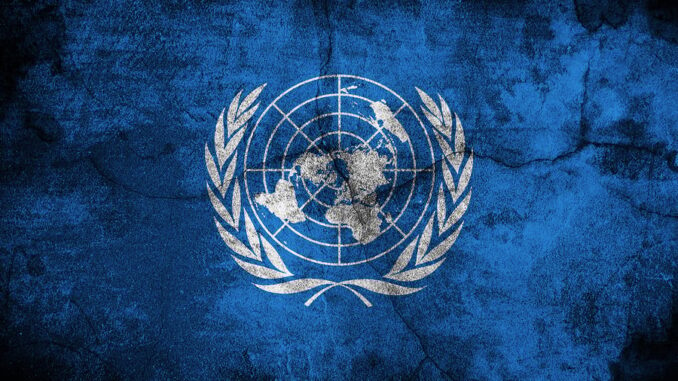
In a move that underscores the Trump administration’s unapologetic pivot toward energy realism and away from what many see as globalist green agendas, high-level U.S. officials have decided to boycott the upcoming UN COP30 climate summit in Belém, Brazil. This decision, detailed in a recent Bloomberg report, aligns seamlessly with President Donald Trump’s longstanding dismissal of UN climate efforts as nothing more than a “scam” designed to redistribute wealth and hamstring American energy dominance.
As the world gathers for yet another round of talks next week, the absence of senior U.S. representation sends a clear signal: America is prioritizing practical energy policies over performative international virtue-signaling.
Breaking Down the Bloomberg Report: Key Details on the U.S. Pullout
According to Bloomberg, the White House has confirmed that top U.S. delegates will sit out the COP30 negotiations, even as 143 nations dispatch delegations to the event.
Only 57 heads of state and government are expected to attend the official summit proceedings, per announcements from the COP30 presidency in Brasília.
Notably, Chinese President Xi Jinping is also opting out, suggesting that even major emitters are questioning the value of these gatherings.
The report frames this snub in the context of Trump’s broader push to reshape global energy dynamics. While specific quotes from Trump aren’t extensively detailed in the article, the headline captures his blunt assessment of the UN talks as a “scam”—a term he’s used repeatedly to critique what he views as fraudulent climate hysteria aimed at imposing burdensome regulations and taxes on productive economies.
Implications for U.S. climate policy are profound: this disengagement hints at a continued rollback of multilateral commitments, freeing up resources for domestic energy production in oil, gas, nuclear, and other reliable sources that don’t rely on endless subsidies.
Though the Bloomberg piece doesn’t delve deeply into motivations, it notes the administration’s focus on influencing energy policy worldwide without entangling itself in UN frameworks.
Reactions from other nations aren’t extensively covered, but the low turnout of world leaders speaks volumes about waning enthusiasm for these annual spectacles.
A Direct Follow-Up to Trump’s UN Stance?
Absolutely—this boycott is a natural extension of President Trump’s recent fiery rhetoric at the United Nations. Just weeks ago, during what some dubbed “Shark Week” at the UN (a nod to the president’s off-script, predatory takedown of green policies), Trump went off the teleprompter to lambast climate alarmism as a hoax and a tool for global taxation.
As covered extensively on EnergyNewsBeat.co, Trump called out UN climate initiatives as a “global carbon tax on Americans,” orchestrated by unaccountable bureaucrats.
He echoed this in pulling the U.S. out of the Paris Agreement on his first day back in office, leaving green talks “up in smoke.”
EnergyNewsBeat.co has chronicled how Trump’s UN appearance disrupted the expected “climate and green energy rally,” instead delivering a dose of reality that sent shockwaves through the net-zero camp.
Critics like Hillary Clinton decried it as “total disinformation,” but for energy realists, it was a breath of fresh air—highlighting how UN efforts often prioritize funding over feasible solutions.
The COP30 skip directly builds on this, rejecting emission deals that could impose tariffs or fees on U.S. industries.
Even as COP29’s finance deals loom in the rearview, Trump’s team is pressuring agencies to drop climate missions, focusing instead on energy abundance.
Echoes from Secretary Chris Wright: Real Science Over Subsidized Fantasies
Energy Secretary Chris Wright, a vocal advocate for evidence-based energy policy, has amplified these themes in multiple speeches, reinforcing the administration’s stance. In a YouTube discussion on subsidies and demand, Wright backed Trump’s view that wind and solar represent “the most expensive energy ever conceived,” arguing they can’t survive without massive government handouts.
He calls for ditching subsidies and embracing forms of energy that thrive on their own merits—fossil fuels, nuclear, and innovations like fusion—without endless capital injections.At a State Department briefing on “common sense energy and climate policies,” Wright emphasized returning to “real science,” dismissing climate change as an “existential crisis” and critiquing data interpretations that fuel green revolutions.
In his CERAWeek keynote and Senate testimony, he outlined priorities for breakthroughs in high-performance computing and quantum tech, while defending the administration’s climate reports against activist pushback.
Wright has consistently stated that Trump wants “MORE energy produced in the U.S., LOWER energy prices, and MORE energy-consuming industries,” a mantra that clashes directly with UN subsidy-dependent green schemes.
Critics, including outlets like ProPublica, accuse Wright of doublespeak—publicly nodding to renewables while privately acknowledging their limitations to conservative audiences.
But for Energy News Beat readers, this is straightforward: prioritize reliable, unsubsidized energy that powers growth, not agendas that drain wallets.
Why This Matters for American Energy Independence
The U.S. boycott of COP30 isn’t just symbolic—it’s a strategic rejection of policies that could burden American producers with emissions fees and international oversight. As Trump and Wright push for energy dominance rooted in facts, not fear, this move could accelerate a global rethink on climate talks. Will other nations follow suit, or double down on subsidies? Stay tuned to Energy News Beat for updates on how real energy policies are reshaping the world.
Stay tuned to Energy News Beat for updates on how real energy policies are reshaping the world.
Got Questions on investing in oil and gas?
ENB Top News
ENB
Energy Dashboard
ENB Podcast
ENB Substack






